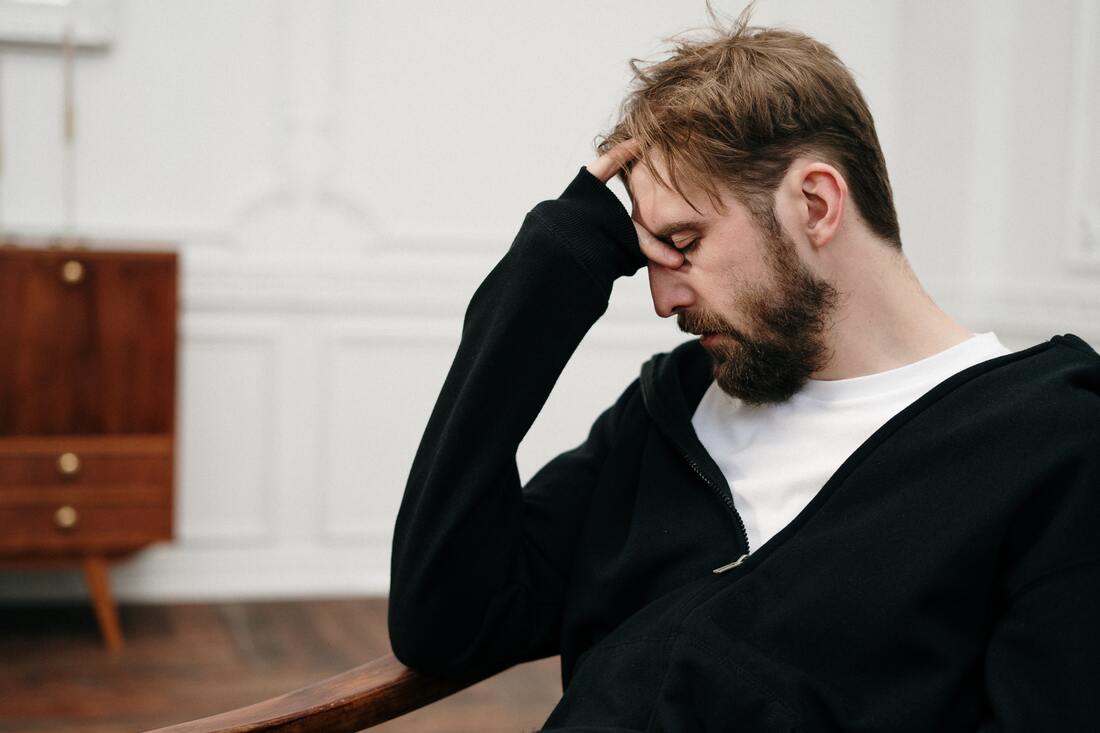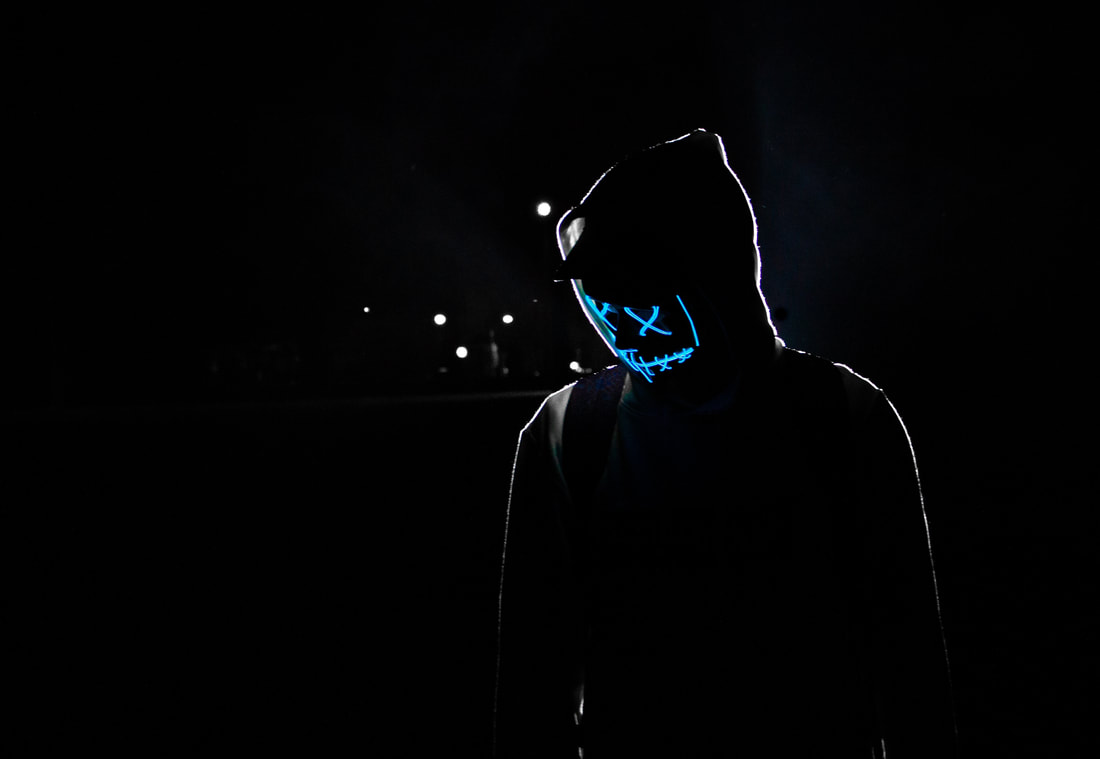|
‘Human existence is always directed to something, or someone, other than itself – be it a meaning to fulfil, or another human being to encounter lovingly.’ (Viktor Frankl) Existential coaching is a powerful and introspective approach that can empower individuals and groups to confront life's fundamental questions, find meaning and embrace personal and social responsibility. Rooted in existential philosophy, this coaching method guides clients through self-exploration, enabling them to confront their fears and uncertainties and make authentic choices aligned with their values. Here are some examples of existential coaching questions:
Existential coaching recognizes that we all face inherent dilemmas, and embracing these challenges can lead to personal and social growth. Using this approach, the coach serves as a supportive ally, helping clients to confront their concerns, explore their inner personal-cultural truths and develop a deeper understanding of themselves. The client can learn to navigate life's complexities with greater clarity and intention, leading to a more meaningful and purposeful life. [Further reading: Monica Hanaway, The Handbook of Existential Coaching Practice (2020); Yannick Jacob, An Introduction to Existential Coaching (2019); Emmy van Deurzen & Monica Hanaway, Existential Perspectives on Coaching (2012)]
20 Comments
‘The people living in darkness have seen a great Light; on those living in the land of the shadow of death, a Light has dawned.’ (Matthew 4:16, the Bible) ‘Death is a thick black wall, against which every soul is hurled and shattered.’ I don’t now remember who said that, but I do remember my philosophy lecturer quoting it when we studied existentialism. These are very dark words indeed and have, for me, a deeply foreboding and chilling feel to them. I sat down and avidly wrote an essay in response, doing my best to present what, I believed, were convincing rational arguments to counter such a nihilistic and hope-less outlook. When I got my paper back, the mark was nowhere near as high as I had hoped for or expected. The lecturer had commented simply yet profoundly that an existentialist writer would have absolutely no interest in my reasoning. It’s not about objectivity or logic. It’s about how it is and feels to be in the world; a phenomenological cry of angst in the face of fragile, fathomless, futility. It was as if, in my attempt to offer ‘correct’ thinking, I had totally missed the point. It never was about thinking. As the years have passed by, I too have known that angst, at a times an almost irresistible magnetic-like pull towards my own death. Sometimes, it has felt like half-clinging on weakly to avoid being pulled over the edge. In the face of unbearable and irreparable heartbreak, suicide can feel like a least-painful solution. Tom Walker’s moving song, Leave a Light On has deep emotional resonance here. Jesus is my life-saving Light. ‘At the end of the day, it’s either God or death.’ (James Wallace). Whatever Advent means to you, Light shines in darkness. Hold onto hope. ‘To the existentialist, life is like a small child, lost and alone in a deep, dark forest. And the child means nothing to the forest.’ (Peter Hicks) Hicks’ bleak depiction of the human condition, of an unresolvable existential angst that we face and experience as we find ourselves thrown into this world, is a despairing vision of life without hope. It reflects vividly Jürgen Moltmann’s view that ‘hell is hopelessness’. Yannick Jacob comments that, ‘there is a way to live without this anxiety, at least temporarily, by deceiving ourselves, by closing our eyes to some of the realities of our existence.’ It’s as if we can numb the pain, make ourselves feel better for a time, by distracting ourselves, or drugging ourselves, to feel safer and more alive. This is, perhaps, a deep root cause of addictive behaviours, of aligning ourselves with extreme positions, of engaging in some forms of extreme sports or of taking medication that seeks to dampen our too-painful-to-handle thoughts and feelings. Instead of being willing to pause, pray and peel back the curtains to reveal what may lay behind our personal and cultural actions and routines, we grip and hold them tightly shut. Over a lifetime, we glue them, stitch them and tape them together. We build barricades to support them, reinforce them and hide them, even to ourselves. Out of sight, out of mind. At least for a while. Sooner or later, we may inadvertently catch a glimpse, experience an unnerving feeling, find ourselves fighting, falling or failing as the walls creak, crack and start to crumble down. It could be sparked by an accident, a break-up, a failed promotion, an illness, a mid-life crisis, a war. Our defences are weakened, no longer able to withstand the swirling, turbulent pressures that have built up behind them. It’s as if suddenly, as if by a flash of lightning, everything is revealed. Our self-assured confidence collapses and, perhaps for the first time, we experience terrifying vulnerability. This is the existential backdrop to the Christmas story: an intensely dark crisis that can’t be resolved with a quick-fix solution. For followers of Jesus, it’s a piercing and dazzling hope-filled account of a profoundly transformational encounter between God and humanity, where God takes the first step and enters our reality. When the Bible says ‘Light shines in darkness’, we catch a glimpse of radiant light, life and love now made possible. Whatever your experience as a coach, whatever the experience of your clients in 2021 – let’s face truth gently, with courage and humility – and make hope real. What is real, what is true, how can we know? These are questions that have vexed philosophers for centuries. In more recent times, we have seen an increasing convergence between philosophy and psychology in fields such as social constructionism and existential therapy. How we experience and make sense of being, meaning and purpose is inextricably linked to how we behave, what we choose and what stance we take in the world. As a Christian and psychological coach, I’m intrigued by how these fundamental issues, perspectives and actions intertwine with my beliefs, spirituality and practice. Descartes once wrote, ‘If you would be a real seeker after truth, you must at least once in your life doubt, as far as possible, all things.’ It’s as if we must be prepared to suspend all assumptions about ‘what is’, to explore all possibilities and dare to think the unthinkable in order to grow and make our best contribution. Things are not always as they at first appear. There are sometimes multiple explanations for the same phenomenon, depending on the frame of reference we or others use to interpret it (see, for instance, Gareth Morgan’s seminal work, Images of Organisation, 1986). We are sometimes blinded to what’s in front of us by our prejudices, preconceptions, cultural constraints or rigid views of the world. It can be hard to maintain healthy scepticism without cynicism. I see it with clients, sometimes in myself too. A sense of being trapped by a fixed Gestalt, a cognitive distortion, an inherited or learned belief system. An inability to see, to recognise the box that we’re in, never mind to see or think outside of it. An avoidance of deep, difficult questions because of the discomfort, confusion or anxiety they may evoke. If we’re not careful, if we can’t find the right help when we need it, it may limit our lives and our learning. I think this is where coaching can play a very important role, helping pose and address some deep questions. Nick Bolton commented insightfully in Coaching Today that, ‘To explore a coaching issue existentially is to understand the relationship that the presenting problem has to the human condition to which it is a response, and to remain focused on enabling a change of perspective that allows the client to move past their current challenge.’ He also provided some helpful examples: ‘For instance, how is a client’s procrastination around something that seems to matter to her a failure to remember that life comes to an end? How is a client’s need to be unconditionally loved by his partner an attempt to deal with existential rather than interpersonal isolation? (And the solutions are very different things). How is someone’s lethargy simply a part of their fear of taking responsibility for their life?’ (July 2013, p17) A metaphysical, existential or theological dimension can shift the entire paradigm of the coaching conversation. The question of whether a client should apply for this or that job is influenced by her sense of purpose. If she is willing to consider that God may exist and have a plan for her life, the whole situational context will change. It can be a dizzying and exciting experience, yet it’s really a question of how courageous and radical we and the client are prepared to be. I had precautionary tests this week for a potentially life-threatening condition. Thankfully, the results turned out to be OK but it’s experiences like this that often bring existential issues into sharp relief. Existential coaching focuses on helping a person explore his or her own sense of ‘being in the world’, that strange psychic awareness that we are in the world before what we are in the world. At times, such awareness can feel mysterious, unfathomable, disorientating and anxiety-provoking. It’s like one of those moments when, as a child, I gazed up into the night sky, saw the stars and the enormity of space, imagined space and time going on forever and felt dizzy and perplexed by it. It can also raise deep questions to the surface such as, ‘Who am I?’ and 'Why am I here?’
According to existentialist thought, our essence as a person isn’t fixed but we become who we are through the choices we make. Our choices are influenced by factors such as the assumptions, beliefs, judgements, hopes and fears etc. we hold about ourselves, the same we hold about others and how we experience and act in our relationships with others, in our everyday circumstances and in the decisions we face and make. Existentialist writers sometimes refer to this as our ‘stance in the world’, that is, how we perceive, position ourselves and act in our everyday lives. Our stance both reflects something of our sense of and our way of being in the world and shapes who we are and become in the world. I can share a personal example to illustrate this phenomenon. When my youngest daughter was 7 years old, I took her to a theme park that had a very high and steep ‘death slide’. I was surprised and impressed to see her quietly but resolutely psyche herself up to leap down its harrowing slope. When she finally did do it, I asked her how she managed to bring herself to push herself off its terrifying edge. She responded in a way that humbled and amazed me: ‘Firstly, when you told me it would be OK, I trusted you that it would be OK, even though it looked so scary. Secondly, when I write about what we did today in my diary tonight, I want to be able to write that I went on the slide even though I was afraid of it, not that I didn’t go on the slide because I was afraid of it. That’s the kind of person I want to be.’ I felt awe-struck and speechless. Curiously, we are often unaware of making choices, or deny to ourselves that we are making choices in order to avoid the responsibility that choice implies, and unaware of the underlying metaphysical world view we hold that both influences and is influenced by our choices. It’s as if we can live at a superficial level, sometimes choose to live at that level as a form of self defence or life-coping mechanism. The problem is that if we only live at that level, we may fail to be who we can become in the world; deny ourselves and others a deeper and more fulfilling life experience; struggle with contact in intimate relationships; expend our time, energy and resources on distractions that aim to suppress or avoid facing the discomfort and anxiety that existential issues can evoke. One of the goals of existential coaching is therefore to raise world view and choice into awareness in order enable clients to live more authentic lives. It’s about enabling clients to acknowledge and deal with underlying anxiety, tensions and conflicts that could be experienced symptomatically in psychological, emotional, physical or relational difficulties or in problematic patterns of behaviour. Duerzen summarises this approach in Skills in Existential Counselling and Psychotherapy (2011) as, ‘to help people to get better at facing up to difficulties with courage instead of running away from them’. It necessarily involves a willingness to explore issues beneath the surface, a willingness to face anxiety and a willingness to explore alternative ways of being and acting in the world. This reminds me of a volunteer assignment I did with a Christian social worker and psychologist in Germany not long after the Berlin wall came down and East and West were reunified. We were working in a social work project with young people, often from fairly poor and dysfunctional family backgrounds, who were being seduced by the far right to join new neo-Nazi groups. The groups provided these young people with a much-needed sense of identity, belonging and purpose in the world. As part of his practice, the social worker would touch sensitively on spiritual issues and questions where it seemed appropriate. A secular humanistic colleague challenged him vehemently on this, insisting that social workers should never stray into the spirituality arena. The social worker empathised with his colleague’s concerns about professional ethics and the risks of pressurising and indoctrinating vulnerable young people. At the same time, he believed that true spirituality speaks to life’s deepest questions, experiences and actions. The social worker responded, ‘These young people often talk in therapy about their deepest fears, about life and death, issues that are very real for them. It’s often such fears that lead them to seek a sense of identity, security and purpose in these sinister groups. We cannot afford to separate our thinking or our practice into neat, distinct, spheres of influence. The matters we and they are dealing with bring profound psychosocial, existential and spiritual issues face to face in the room.’ I agree. So what could existential coaching look like in practice? Firstly, the coach will invite the client to share their story, particularly focusing on issues that led them to work with a coach in the first place. The coach’s role at this stage is primarily to listen and, over time, to reflect back any beliefs and values that surface implicitly or explicitly in the client’s account, particularly in terms of how the client perceives themselves, others, issues and their situation. In this sense, the coach is acting as a sounding board and a mirror, enabling the client to grow in awareness of his or own world view. The coach will go on to focus on specific tensions that may emerge, e.g. between the client’s underlying beliefs and values and the stances or actions they are choosing in practice. The intention here is to surface the client’s underlying personal and cultural metaphysic rather than simply his or her way of perceiving and responding to an immediate issue. This approach is based on a belief that the client’s general world view or stance-in-the-world will influence e.g. what issues the client perceives as significant; how they perceive, experience and evaluate them; what their subjective needs and aspirations are; what approaches and actions they will consider valid or appropriate; what actions they will be prepared to commit to and sustain etc. This approach also enables the client to explore any tensions within their world view, between that world view and those of others in their situation and between their world view and their actions. The problem with the language of ‘world view’ in describing such an approach is that that it sounds too conscious, too cognitive, too coherent. The focus of existential coaching is profoundly subjective and phenomenological, that is, how the client actually experiences and responds to his or her being-in-the-world at the deepest psychological levels. In that sense, it’s as much about how a person feels, the questions they struggle with and what they sense intuitively as what they may think or believe rationally. Again, there are important links for me with a spiritual dimension. As I faced my own health-related tests this week, for instance, I experienced my faith in God as something more like a subconscious, mysterious, inner ‘knowing’ than a rational assent to a set of beliefs. As the coaching conversation progresses, the coach may help the client identify choices he or she is making (including by default), potential choices he or she could take in the future and how to integrate the client’s choices with his or her chosen being and stance in the world in order to live a more authentic and thereby less conflicted life. At one level, this enables the client to become more aware of and honest about their decisions and actions and to act with a greater sense of freedom and responsibility. At another level, it opens up more opportunities for the future than the client may have perceived previously. It can feel very liberating and energising to discover fresh ways of perceiving and acting in situations that have previously felt stuck or entrapping. Sample coaching methods could involve helping the client reframe experiences as choices or to change their language from passive to active voice. For example, ‘I have to write this report for my boss by Friday’ or ‘This report needs to be written by Friday’ sound and feel less empowering than, ‘I will choose to write this report for my boss by Friday’. It enables the client to take ownership of their choices and to weigh up alternative courses of action. After all, if it’s a choice, I can choose differently, although I will need to weigh up the relative pros and cons of different choices. My best choices are congruent with my underlying beliefs and values, e.g. in this case, respect for authority, the sense of a job well done or a desire to keep my job so I can pay my bills. The coach is likely to help the client connect their choices with their underlying world view. One way to approach this is to use the ‘7 whys’ technique whereby each time the client explains why they are choosing a certain course of action, the coach responds with, ‘…and why is that important to you?’ until the client’s deepest values, aspirations and anxieties surface. I will end this piece by posing some brief existential questions for personal reflection: Who am I? What personal stance do I want to take in the world? How do I handle contradiction, ambiguity, uncertainty and paradox? What is most important to me? What is God or this situation calling for from me? How consistent are my choices with my values? How well do my actions reflect the person I aspire to be? Does God exist? Does it matter anyway? This is a question philosophers, theologians and ordinary people have been grappling with for centuries. For some, the notion of ‘God’ feels abstract, archaic or loaded with cultural or political baggage. For others, it simply feels irrelevant, something that only seems to have meaning or significance for those of a religious disposition.
Existentialists take the question seriously, after all, they’re concerned with answering questions such as, who am I, why am I here, what is the purpose of life? Many are atheist and draw bleak conclusions. We’re here purely by chance, a cosmic accident. One day our solar system will die, we will die with it and there will be nobody to remember or care that we even existed. I believe this is an honest appraisal of life without God. It leads to some startling conclusions. If there is no God, there is no absolute truth, no absolute right or wrong, no absolute meaning to anything. The only meaning is that which we make for ourselves. We create values and worthy causes or bury ourselves in everyday activity to avoid facing the inevitable angst. I find it difficult to get away from this conclusion, if I hold the view that God doesn’t exist. I can of course do things that feel meaningful, I can do things that others find meaningful too, e.g. I can use my talents to contribute to the wider family, society or world. These things feel culturally important, intuitively right, personally fulfilling, the best way to build a happy world. The underlying problem persists however, as if nagging in the background of our consciousness. It surfaces occasionally, e.g. with the birth of a new baby, mid-life crisis, the death of a close one, poverty or war. What does all this mean? Why are things as they are? Is there anything more to life than this? I too will face death - what would make my short life worthwhile? Existentialists pose a stark challenge. Life is meaningless. Our efforts to avoid this reality are defensive, delusional and futile. There is no ultimate point to anything. We can face this reality or deny it. Either way, the facts remain the same. Nevertheless, we can still make choices. We can choose to be, do and become our best, to fulfil our human potential. This all presupposes, of course, that God does not exist. If God does exist, a very different picture emerges, depending of course on our concept of ‘God’. I experience God first and foremost as an intuitive phenomenon, a deep sense of knowing, an awareness of an inner presence that transcends my own self. My Christian beliefs help me make sense of this existential experience. If God exists, if the God of Christian theology is the God who is, I exist because he exists. He created me which gives me a profound sense of identity: I am first and foremost a child of God. He created me with an eternal purpose in mind: my life is first and foremost an opportunity to fulfil his designs, plans and intentions in, for and through me. This paradigm, this way of living in the world, presents fresh challenges. How to exercise faith in an invisible yet somehow discernable God, how to live an authentic life based on his call whist distracted by my own preoccupations, how to live with suffering and injustice with a new vision of what could be, how to work with others to achieve meaningful transformation. Nevertheless, this belief presents a radical alternative to the atheist existentialist view. It fills bleak darkness with blazing light, hopeless meaninglessness with hope-filled meaning in everything. It isn’t wishful thinking, an attempt to avoid existential nihilism. It’s a profound revelation of truth and reality, a relationship that calls me beyond myself into amazing possibility. |
Nick WrightI'm a psychological coach, trainer and OD consultant. Curious to discover how can I help you? Get in touch! Like what you read? Simply enter your email address below to receive regular blog updates!
|







 RSS Feed
RSS Feed